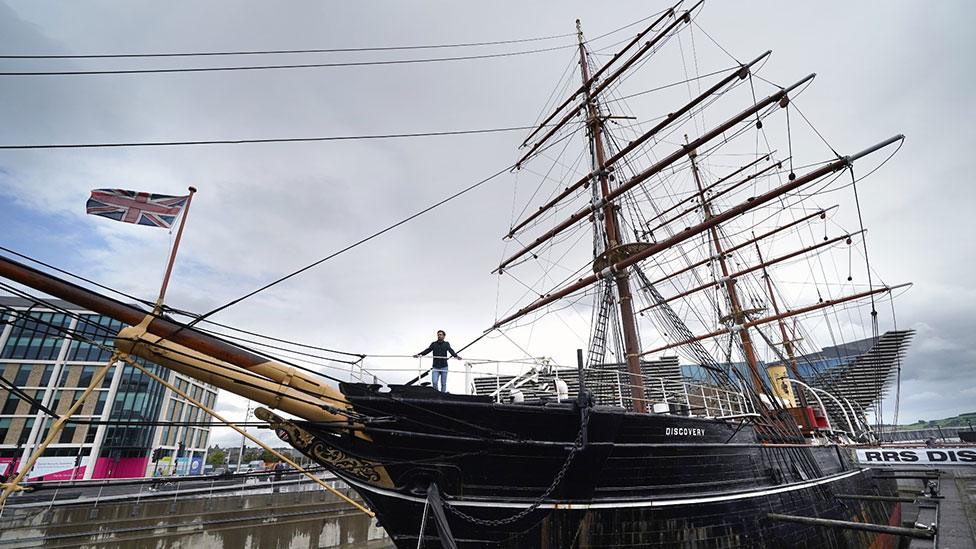RRS Discovery's rudder removed for restoration
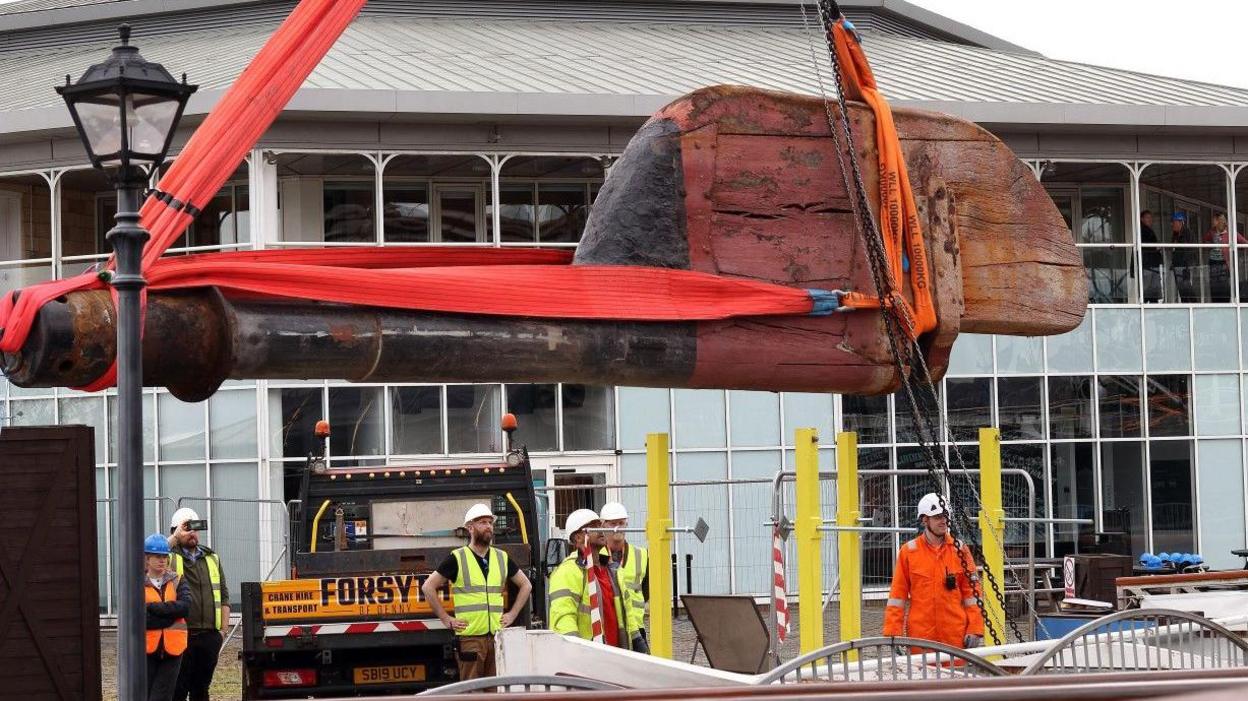
The rudder will be repaired following its removal from the ship
- Published
The rudder from the RRS Discovery in Dundee has been removed as part of major conservation works on Captain Scott's Antarctic ship.
The vessel was built in the city in the early 1900s to take explorer Captain Robert Falcon Scott to the Antarctic.
The rudder measures almost 8m (26.2ft) tall and weighs close to six tonnes (6,000kg).
It is expected to be separated from the ship for a year while it is repaired.

The rudder weighs almost six tonnes (6,000kg)
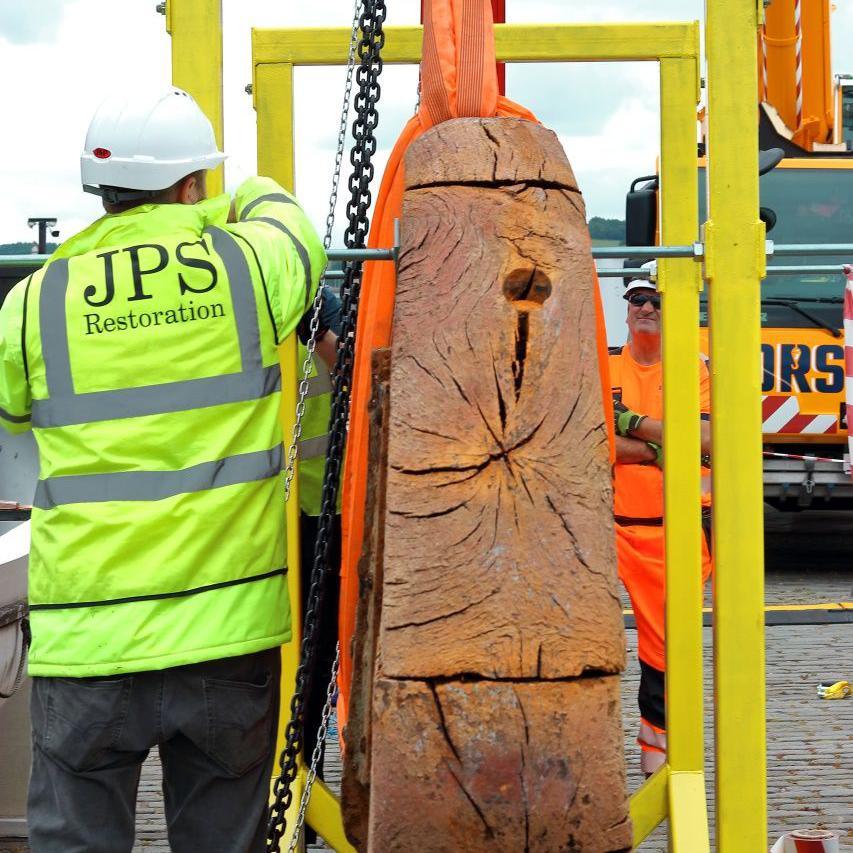
The rudder was installed in 1904 after its predecessor was damaged in the Antarctic
The first phase of the ship's £1.4m restoration, focusing on the stern, began in February.
The rudder has been placed on the dockside at Discovery Point, alongside two small cabins called "cuddies" which were removed earlier this year.
Dundee Heritage Trust said the temporary removal of the ship’s rudder will also lighten RRS Discovery’s overhanging stern, which is an "immediate focus" of the major restoration project.
The rudder was also removed and replaced 120 years ago, after it was damaged while freeing RRS Discovery from the grips of the Antarctic ice.
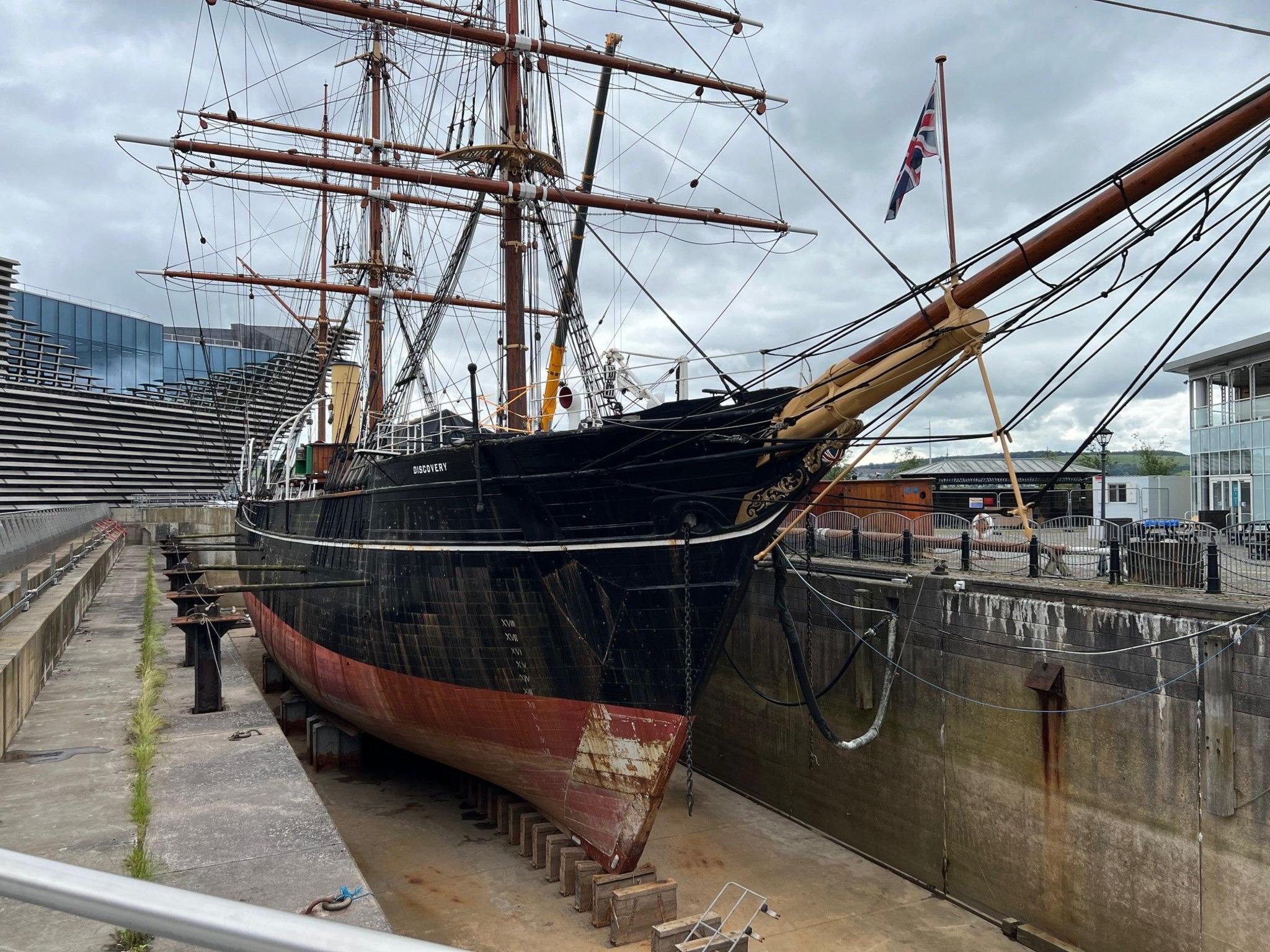
The ship was moved to its current home on the waterfront in 1992
Conservation engineer Jim Mitchell from JPS Restoration said it was a "key point" in the project.
He said: "We're also going to put a steel structure through the stern, where the rudder came out.
"It's quite difficult because we had to remove a threaded nut on the bottom of the rudder that had been put on in 1901, so it was quite tight as you can imagine.
"So we had to use all sorts of engineering tricks to get it off."
Mr Mitchell said the rudder needed restored as the timbers had dried out "quite badly" due to the ship being out of the water for three decades.
Related topics
- Published15 February 2024
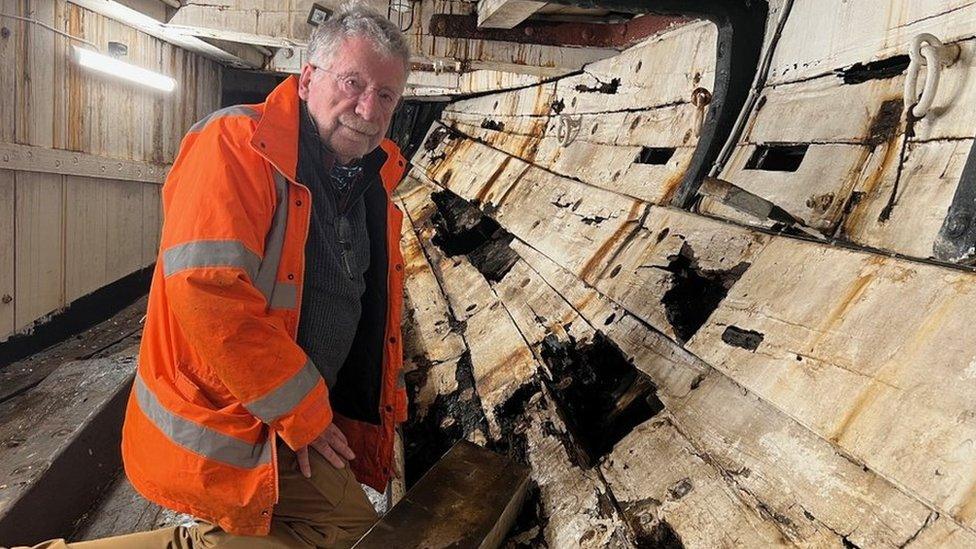
- Published26 September 2022
